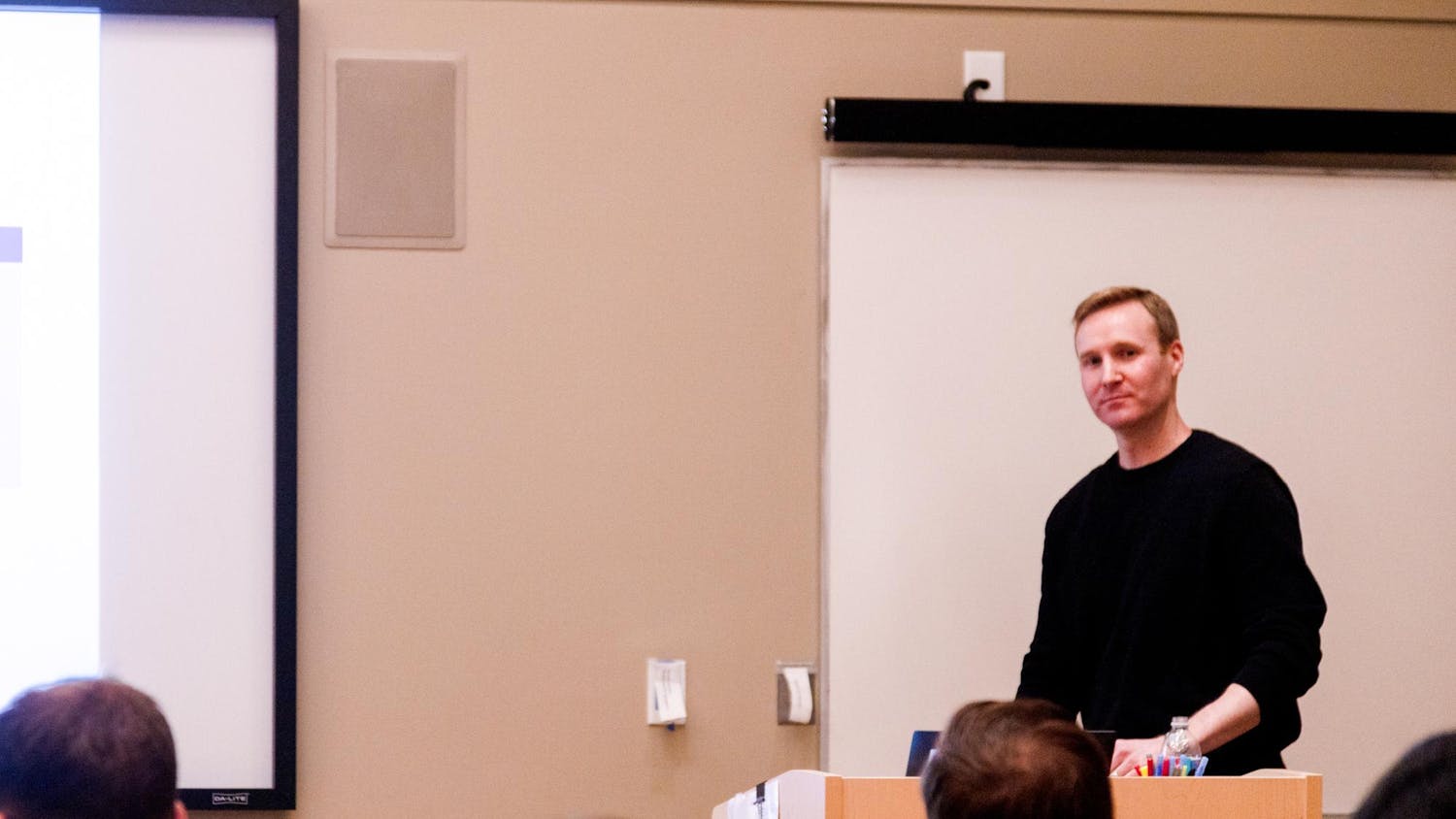Correction appended.
At a screening of his 2007 documentary about the Haitian revolution at the Watson Institute for International Studies last night, filmmaker Noland Walker discussed the implications of the momentous event in the context of human rights and slavery.
Walker's film, "Egalite for All: Toussaint Louverture and the Haitian Revolution," chronicles the events of the Haitian revolution through the eyes of one of its most important leaders, an educated former slave named Toussaint Louverture , whom one historian interviewed in the film dubbed "black George Washington," and another termed a "genius."
As a member of Haiti's plantation-owning elite, Louverture became secretary for the rebel slaves when fighting broke out between them and the white landowners in 1791. He acted as liaison to the white planters and originally tried to design a peace settlement that would push blacks back into slavery — a "stark recognition of 18th-century realities," the film's narrator says. The struggle lasted for about a decade until by 1804 the French revolutionary government had freed nearly a million slaves across the empire, and Haiti had won its independence.
"The Haitian revolution raises the most fundamental question in the Americas in the 19th century: slavery," Professor of Africana Studies Barrymore Bogues said at the screening. Bogues served as a commentator throughout the film along with Walker and fielded questions on Haiti's history.
Historians debate whether to idolize Louverture for his leadership and intellect or to condemn him for the military power that he gained after the revolution — the aftershocks of which can still be felt in Haiti's militaristic society today, Bogues said.
Walker said that although shooting the movie in the Dominican Republic with a mix of Dominican and Haitian actors and crew caused some racial tensions (the film relied heavily on historical re-enactments), the film still accomplished its main goal.
"We wanted to get across that the Haitian revolution was not just Haiti's revolution," he said. "It was an inclusive human rights struggle"
"In the midst of the most absolute form of domination — racial slavery — there is hope," Bogues added. "That hope is important for all people who suffer from domination. That, to me, is the real story behind the Haitian revolution."
Wednesday night's lecture was the second in a two-part series on Haiti co-sponsored by Watson's Center for Latin American and Caribbean Studies, the C.V. Starr Lectureship and the Department of French Studies. The first lecture, on Vodoun religion and culture, took place Oct. 30 — All Hallow's Eve, a day when Haitians celebrate the passing of ancestors.
"Without the Vodoun religion, we wouldn't have had the Haitian revolution," said Visiting Lecturer in Latin American Studies Patrick Sylvain, who organized and moderated both events.
"Vodoun remains very much centered in the history of the ancestors, and it remains very much centered around the whole aspect of freedom," he said. "By the way that Catholicism was imposed on the slaves, in addition to slavery, Vodoun became the vehicle to which all of these tribes became unified."
He said one of the major events leading up to the revolution was a religious ceremony in 1791, in which the slaves formed a pact of unity to achieve freedom, a central tenet of Vodoun.
The talk featured Marie Evans, a high priestess in the Vodoun religion. Sylvain said the priestess described the roots of the religion in the area of Vodou, West Africa, and its emphasis on its followers' ancestry in order to "demystify" the religion.
"In Hollywood, they call it Voodoo, but the term is Vodoun," he said. "Vodoun means spirit, or spiritual world, whereas Voodoo is an American invention, in a sense, that portrays this negative aspect of pins and needles, and so forth."
Evans' talk was followed by a short dance by Jean Appolon, a professional Haitian dancer, about whom Sylvain is producing a documentary.
The recent events exploring Haiti fit well on Brown's campus, where the John Carter Brown Library houses a world-renowned collection of Haitian artifacts.
"I believe it's the largest collection of Haitian documents written at that time in American and the second largest in the world, after the National Library of France," said the library's director, Ted Widmer, who said he seeks to raise the library's profile as a center for Haitian research.
The library hosted a conference and exhibit on Haiti in 2004 in honor of the 200th anniversary of the country's revolution. Widmer said the library is about to undertake a project to digitize many of its rare Haitian documents in an effort to make them available to institutions in Haiti.
"I'm trying to build up our collection, digitize our collection and take what we've got and make it available to the people who care about it the most: the Haitians themselves," he said.
A caption on page 1 in Thursday's paper (accompanying "Filmmaker views Haiti revolution through leader's eyes," Nov. 5) incorrectly identified the man speaking as the filmmaker, Noland Walker. The man pictured in the photograph is Professor of Africana Studies Barrymore Bogues.




